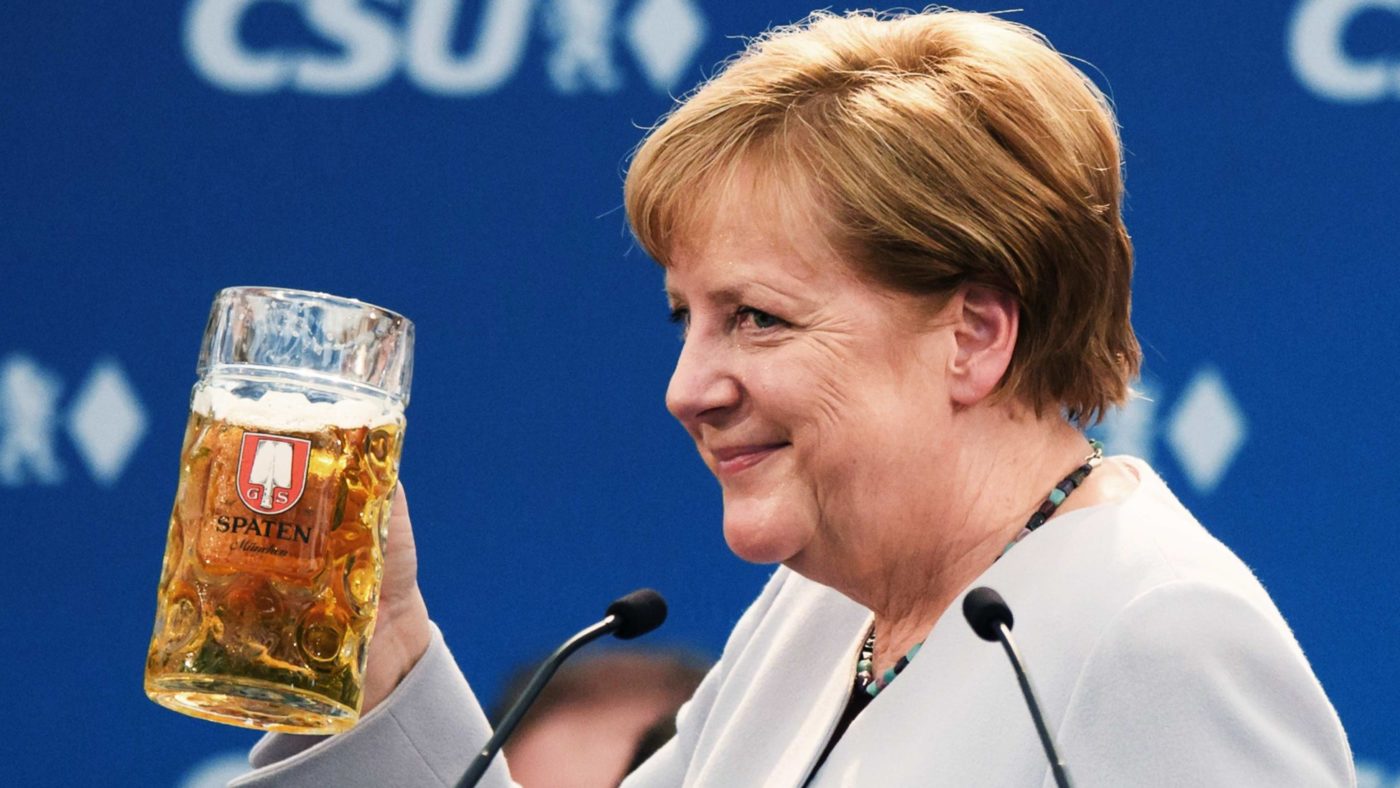The German federal election is fast approaching. On September 24, voters will decide whether to keep Angela Merkel in office for a record fourth term, or usher in a new era of German politics.
But the leader of the centre-right Christian Democratic Union party (CDU) faces threats from both sides. Martin Schulz, the Social Democrat (SPD) candidate, recently left his post as President of the European Parliament to stand for the Chancellorship. Meanwhile, the right-wing, Eurosceptic, Alternative for Germany party (AfD) is looking to build on the 4.7 per cent of votes it won in 2013.
Nonetheless, Mrs Merkel remains the favourite. There are a number of reasons for this.
The German economy is the strongest in the European Union.
According to the World Bank, Germany’s GDP in 2016 stood at $3.467 trillion, the largest economy in the euro area. Since then, unemployment has hit record lows, dipping under 4 per cent in 2017. Stock market prices have risen, the manufacturing sector is booming and trade exports are in high demand, particularly in the US and Chinese markets.
According to a June 2017 OECD economic forecast, nominal wages will continue to grow by 2.5 per cent per year in real terms. Germany boasts a large budget surplus, which it has used to increase its local government budget, consolidate its defence and security costs and offer more generous allowances to the taxpayer. Seven years of stable economic growth, presided over by its globally respected Chancellor, have strengthened Germany’s undisputed position as the European Union’s economic heavyweight.
Under her stewardship, Germany continues to be a vital EU policy-maker and a respected actor on the world stage.
Merkel has revised her calamitous immigration policy.
One of the key issues in the build up to this election is the European migrant crisis. Merkel’s controversial open-doors policy, welcoming over one million refugees in 2015, dramatically weakened her leadership.
Opposition parties and CDU defectors criticised her refusal to tighten border restrictions, impose stricter sanctions on illegal immigrants, ease social welfare pressures and tackle increasing crime rates. According to a 2016 Project 28 poll, over half of Germans believe that the influx of illegal immigrants is a very serious problem and 70 per cent are convinced it will increase the threat of terrorism. 75 per cent of Germans today are critical of the European Union’s handling of the immigration crisis.
And so, while Merkel’s ratings plummeted, the AfD’s success soared. Now the party has realistic ambitions of achieving the 5 per cent electoral threshold needed to sit in the Bundestag. Those worries about immigration and security have been crucial to their rise.
But in the meantime, Mrs Merkel finessed her stance. Her government now preaches a liberal but responsible refugee policy and is spending more to integrate immigrants into German society.
Germany needs an experienced foreign-policy operator.
Risk-averse Germans see Merkel as a skilled negotiator who is most comfortable on the international stage. Rubbing shoulders with world leaders does not faze her. While Donald Trump threatens to destabilise Germany’s precious alliance with the United States, the EU and the United Kingdom struggle through Brexit negotiations and North Korea continues its aggressive nuclear weapons testing, the German people look to a foreign-policy veteran to maintain robust relations abroad and protect national interests.
In fact, although Merkel does not see eye to eye with Trump, she might be grateful that his headline-grabbing policies have turned the spotlight away from the European migrant crisis in Germany and towards German foreign relations. A year ago, the migrant crisis would have been a decisive factor in a German national election; now, Merkel has a chance to redeem herself.
The honeymoon phase of right-wing populism in Europe appears to be over.
The defeats of Marine Le Pen’s Front National in France and Geert Wilders’ Party for Freedom in the Netherlands point to a Europe-wide clamour for more moderate party politics.
These results will weaken the electoral prospects of the AfD, who have veered towards becoming a nationalist, xenophobic group. Even if AfD hardliners win enough votes to gain seats in parliament, it is unlikely any of the other parties would be willing to work with them.
Schulz is no longer a credible alternative.
If the first televised debate was anything to go by, Merkel’s Social Democrat rival is struggling to claw back support. Schulz, a pro-Europe federalist, has set out a manifesto promising to boost the EU, tackle the migrant crisis question and raise taxes on the rich. However, his position is not as strong as it was in February, when he won the SPD candidature. The victory of Merkel’s conservatives in regional elections in North Rhine-Westphalia, Germany’s most populous state and a historic SPD industrial stronghold, is a clear indication of a swing towards the CDU.
Germany’s elections come at a critical time. Whoever is elected will be tasked with allaying German fears at home and abroad. Confronting security issues, social welfare reform and a tougher immigration policy will be among the immediate priorities. Merkel, a supreme political operator, knows this. And knowing Germany, it will vote for stability, rather than change.


